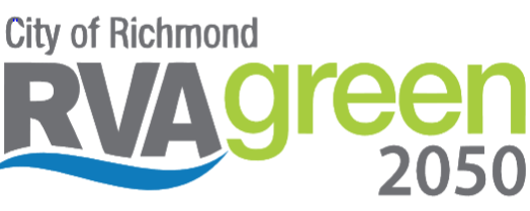Racial Equity & Environmental Justice
Richmond’s history - whether measured in centuries, decades, years, months, weeks, or days - is fraught with racism. This has created systems that serve our community in inequitable ways, from education and healthcare to government and natural resources. Our Black and African American and Hispanic and Latino communities in particular face more harm due to crises such as climate change and COVID-19.
What does this look like in Richmond? Many of the inequities associated with climate change impacts come down to race and ethnicity. For example, individuals in poverty have fewer resources and receive less support, which reduces their ability to prevent, cope with, and adapt to climate change impacts. Climate change impacts increase the vulnerability of individuals below the poverty level, causing a rise in risks such as physical and mental illnesses, job loss, and decreased food security.
White (Not Hispanic or Latino)
Residents in Poverty
Black or African American
Residents in Poverty
Hispanic or Latino
Residents in Poverty
Source: RVAgreen 2050 Climate Equity Index, 2016 American Community Survey
Actions we’re taking:
The Office of Sustainability is committed to centering racial equity in our work, including the RVAgreen 2050 planning process. We are doing this through intense learning, listening, acknowledging mistakes, and making changes along the way. We acknowledge the trauma that exists in our community and the role that government has played in contributing to that trauma. We recognize that we hold positions of power and privilege and seek to engage in constructive dialogue and action to leave a positive legacy with our work. Racial justice is climate justice, and we stand in solidarity with the Black Lives Matter movement and the Richmonders demonstrating their support.
The Office has invested significant staff time in building our knowledge and capacity to work on racial equity issues, including:
Equity training through the Urban Sustainability Directors Network
One-on-one coaching with equity experts
Research and learning on Richmond’s racist history and current racial equity issues
Internal discussions, stakeholder engagement, and peer knowledge sharing on best practices
Committed to Racial Equity Here, a national movement to advance racial equity by dismantling structural racism, city by city, town by town. Good intentions aren't enough to close outcome gaps, so we are committed to moving forward, together.
Creating a racial equity tool to use during the planning process to minimize the risk of harm and enhance potential racial equity benefits for all RVAgreen 2050 climate action and resilience strategies
What you can do:
We cannot ignore the link between racial equity and climate change. Build your knowledge and understanding of this critical issue using the resources below.
Perspectives on Why Racial Justice is Climate Justice
Urban Sustainability Directors Network Equity Foundations Training (free)
Washington Environmental Council Resources on Environmental Justice, Racism, and Whiteness
Racial Equity Tools - Environmental Justice Resources
Richmond Public Library Black Lives Matter Anti-Racist Reading List
From anti-racism educator Tim Wise, Code of Ethics for White Anti-Racists
Support local organizations led by people of color working on environmental issues such as Southside ReLeaf, Groundwork RVA, and Virginia Interfaith Power & Light.

RVAgreen 2050 will build on the foundation set by Richmond 300, the city’s master planning process that engaged thousands of Richmonders in identifying objectives such as these supporting racial equity:
3.3: Broaden the constituency for historic preservation by more equally representing, preserving, and sharing the sites related to traditionally underrepresented groups
5.1: Increase public knowledge of planning processes and continuously engage civic associations, special interest groups, and traditionally underrepresented groups in the planning process
11.3: Increase the number and support the growth of small businesses, start-ups, and women-owned and minority-owned businesses
17.4: Increase the percentage of Richmonders within a 10-minute walk of quality open space to 100% prioritizing low-income areas with a high heat vulnerability index rating, with a long-term goal of having all Richmonders within a 5-minute walk of a quality open space





